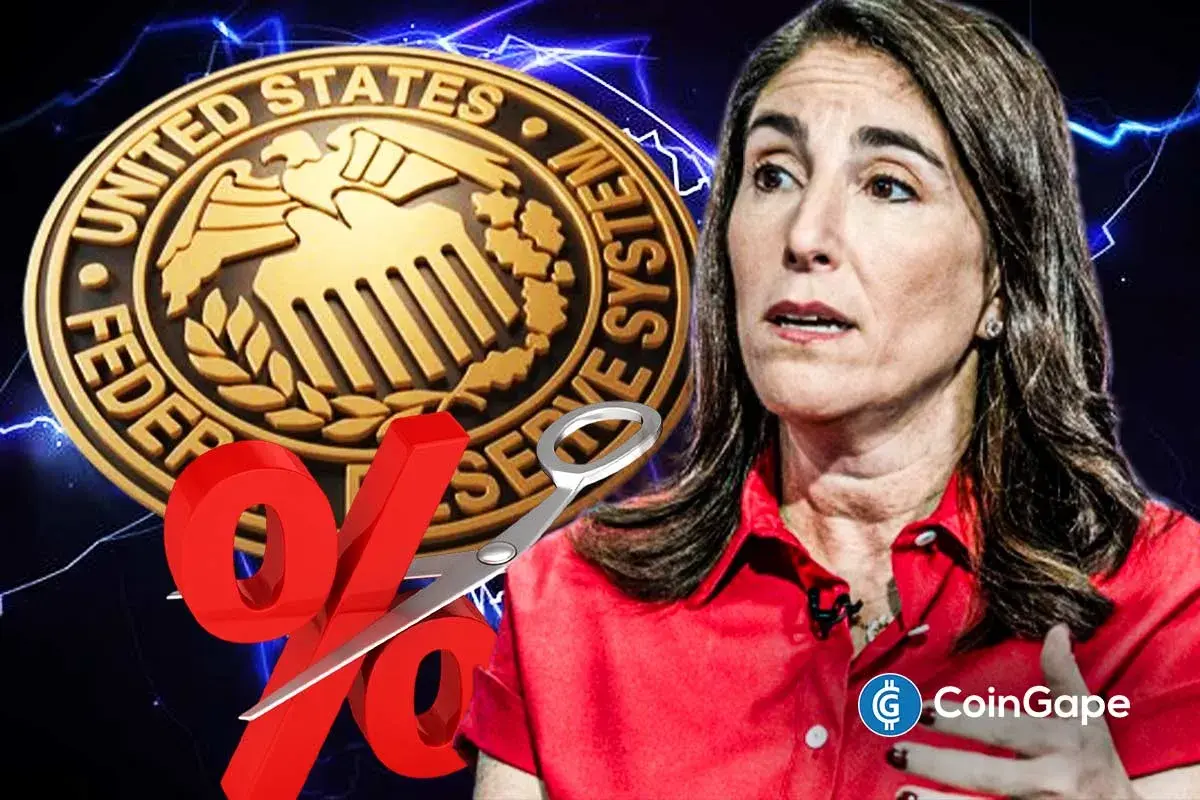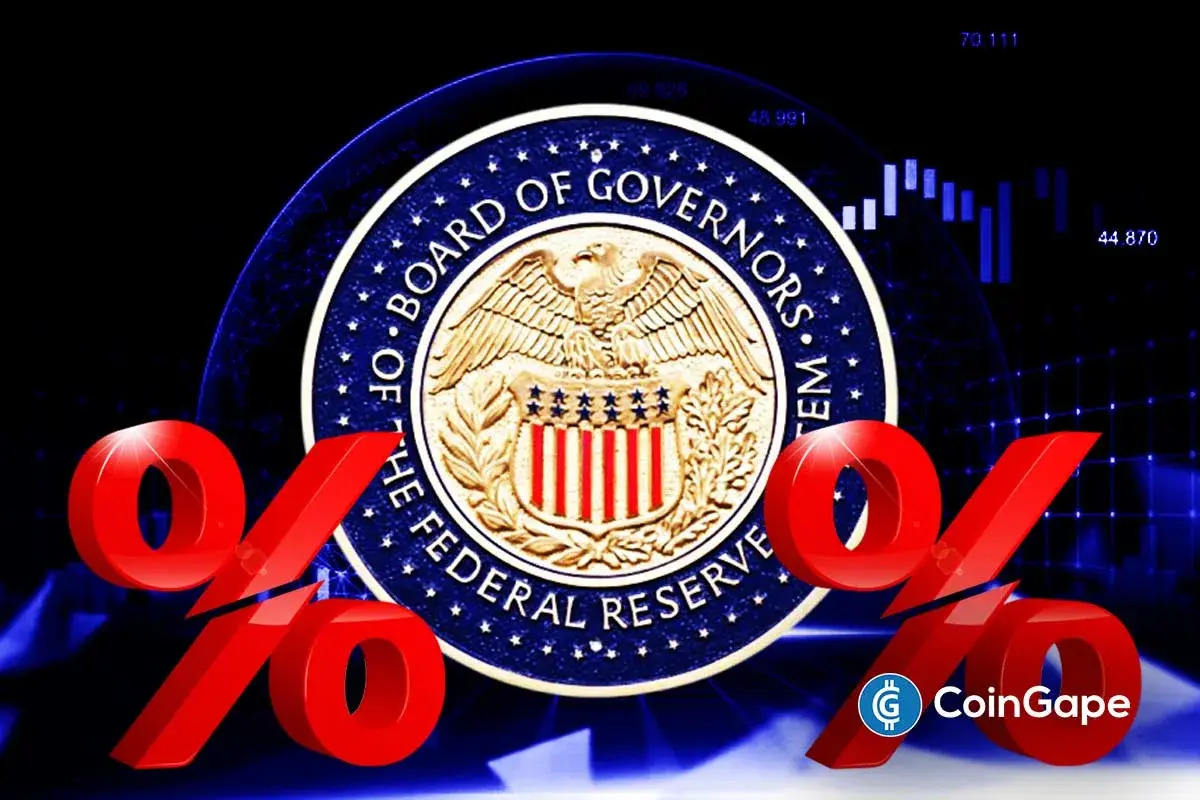US Senator Lummis Opposes Court Verdict in Custodia vs Fed Case

Highlights
- Custodia Bank vs Fed case underscores regulatory hurdles for crypto.
- Fed's 20-month delay in Custodia case sparks industry concerns.
- Custodia's legal battle highlights clash over digital asset banking.
Following a judgment of the case between Custodia Bank and the Federal Reserve (Fed), US Senator Cynthia Lummis noted her disagreement, stressing the necessity to follow law passed by Congress for the issue of master accounts to Special Purpose Depository Institutions (SPDIs) in Wyoming.
The verdict that favored the Fed has fueled talks about the implications on financial freedom and innovation in the United States, especially within the emerging cryptocurrency sector.
The Fed's inaction in issuing master accounts is unacceptable, and I am disappointed in today’s court ruling that goes against clear laws enacted by Congress. Wyoming SPDIs have the right to access master accounts. It is past time the Fed follows the laws passed by Congress.
— Senator Cynthia Lummis (@SenLummis) March 29, 2024
Background of the Custodia vs Fed Case
Custodia Bank, a Wyoming-chartered depository institution, filed a lawsuit against the Federal Reserve after a prolonged delay in the consideration of its application for a master account. These accounts are critical for banks as they provide them instant access to the services of the Federal Reserve, which includes check clearing, wire transfers, and automated clearinghouse (ACH) payments.
Custodia argued that its case did not meet such a requirement, which is mandatory for all federal or state-chartered depository institutions according to federal regulations.
The lawsuit was prompted by the Fed’s delay, lasting more than 20 months without coming to any decision, a deadline that was well beyond the usual 5-7 business days needed for master account approvals. Custodia’s legal struggle was aggravated when, eight months after the litigation, the Fed officially rejected the application, which was representative of the regulatory challenges that many crypto-related businesses were facing.
Discrepancies in the Fed’s Evaluation
The investigations carried out during the court cases exposed major modifications in the assessment reports, which were prepared by the Kansas City Fed and then changed by the main Fed in DC.
Preliminary findings revealed that Custodia had met all major regulatory criteria like capital adequacy, risk management, and liquidity. Nevertheless, the last ones were edited to emphasize the claimed drawbacks, thus venting doubts about the objectivity and justice of the review.
These changes spanned the areas of capital requirement and risk management to liquidity and management experience, leaving Custodia in a very unfavorable picture in the end report. Critics claim that the changes signify a larger distrust and regulatory conservatism with respect to the digital asset service providers, which could, in turn, hamper the growth and innovation of the area.
Support for Custodia and Broader Implications
The lawsuit has received substantial publicity and backing from different sides, including the Blockchain Association and the Attorney General of Wyoming, who submitted amicus briefs in support of Custodia. This assistance emphasizes the perceived wider implications of the case, going beyond the specific interests of Custodia to include fundamental issues of regulatory clarity, financial innovation, and the incorporation of digital assets into the mainstream financial system.
A sad day for financial freedom and innovation in the U.S.
A Judge has ruled in favor of the Fed and against @custodiabank.
No way to sugarcoat it.
This is a win for the forces behind Operation Chokepoint 2.0.@CaitlinLong_ is a fighter and I expect we might hear that she will… https://t.co/fBp8xxUM8F— MetaLawMan (@MetaLawMan) March 29, 2024
Senator Lummis‘s stance, in addition, reflects a growing concern among some policymakers over what they view as an overly cautious or obstructive regulatory approach to the crypto industry, often referred to colloquially as “Operation Chokepoint 2.0.” This term alludes to a perceived systematic effort to limit the operational scope of cryptocurrency businesses through stringent regulatory measures.
Read Also: Judge Sides with Federal Reserve in Custodia Bank Crypto Case
- Expert Predicts Bitcoin Dip to $49K as ‘Trump Insider’ Whale Dumps 5,000 BTC
- Bitcoin Price Rebounds $70K, Here are the Top Reasons Why?
- Crypto Market Weekly Recap: Crypto Bill White House Meeting, Binance Buys $1B BTC, and More (9- Feb 13)
- TRUMP Coin Pumps 5% as Canary Capital Amends ETF Filing With New Details
- Crypto Prices Surge Today: BTC, ETH, XRP, SOL Soar Despite US Government Shutdown
- 3 Top Reasons Pi Network Price Surging Today (14 Feb)
- XRP Price Prediction Ahead of Potential U.S. Government Shutdown Today
- Bitcoin Price Outlook As Gold And Silver Lose $3.6 Trillion in Market Value
- XRP and Ethereum Price Prediction as Trump Seeks to Lower Key Tariffs
- Solana Price Prediction as $2.6 Trillion Citi Expands Tokenized Products to SOL
- Bitcoin Price Could Fall to $50,000, Standard Chartered Says — Is a Crash Coming?


















